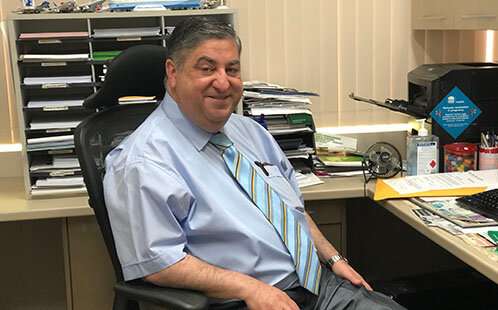Overworked and undervalued: GPs struggling to keep afloat in western Sydney

A Western Sydney University research paper has painted an inspiring picture of local General Practitioners (GPs) who, despite the heavy personal and financial toll, are deeply committed to serving their communities.
Professor Jenny Reath from the University’s School of Medicine was the lead researcher on a 2016 study which interviewed 57 GPs, nurses, receptionists and patients in the Blacktown-Mt Druitt area. The results are now published in the international journal BJGP Open.(opens in new window)
The study revealed an untenable situation in which medical practices are not receiving adequate funding and health professionals are experiencing physical, emotional and financial burn-out.
Professor Reath says GPs are under immense pressure because they want to give the best care possible for their patients, but they do not have the time or the resources.
“GPs in Australia are generally self-employed, their income primarily derived through the Australian government-funded Medical Benefits Scheme (MBS),” says Professor Reath.
“Funding from the MBS is on the basis of time spent directly with patients, so anything that takes the doctor out of the consult room—or that is done without a patient present—is effectively unpaid. For the small practices, with perhaps only one doctor, this can be particularly challenging.”
Professor Reath says high quality general practice is important in culturally diverse, urban areas such as Western Sydney—where there are high levels of socioeconomic disadvantage and a high prevalence of health risks and chronic disease.
“Many people require specialist medical care, but these services are often out of reach—so the local GP often becomes the lifeblood of the community, the ‘jack of all trades’ who provides a wide range of health services,” says Professor Reath.
Dr. Hani Bittar, a GP at Richmond Road Family Practice in Glendenning, was interviewed for the study and is one of the GPs that the BJGP Open (opens in new window) paper warns could be a ‘dying breed.”
“I have worked in Western Sydney since 1990, and I run a small practice and try to keep the overheads low. My practice is not based in a large shopping center, but the rent and bills are still high. Unfortunately, we just float above the water level financially,” says Dr. Bittar.
“Even if GPs want to, there is no more space to squeeze the unpaid things in. People think that health is free of charge, but the truth is, we are out-of-pocket. It’s extremely hard.”
The Western Sydney University study points to the need for widespread reform, improved funding and new models of care to better address the needs of socioeconomic and health disadvantaged communities.
The recommendations include:
- “Quality over quantity’ when it comes to healthcare: Medical practices should be remunerated for quality of care, rather than on the basis of patient numbers.
- Strategies to improve patient access to specialist care—particularly those at socioeconomic and health disadvantage.
- Incentives for team-based, patient-centered models of primary care, with multidisciplinary teams that include GPs, allied health care providers and practice nurses.
- Improved funding for important services, such as those offered by the Primary Health Network (PHN) and the Mt Druitt Medical Practitioners Association.
Dr. Bittar advocates for a new model of healthcare in Australia, that removes barriers and encourages a multidisciplinary, team approach amongst health professionals.
“At my practice, I regularly meet with a team that includes a practice nurse, medical assistant, integrated care nurse and a pharmacist. We sit together to discuss the chronic health concerns of our patients, we learn from each other, and work together to solve problems,” he says.
Source: Read Full Article
